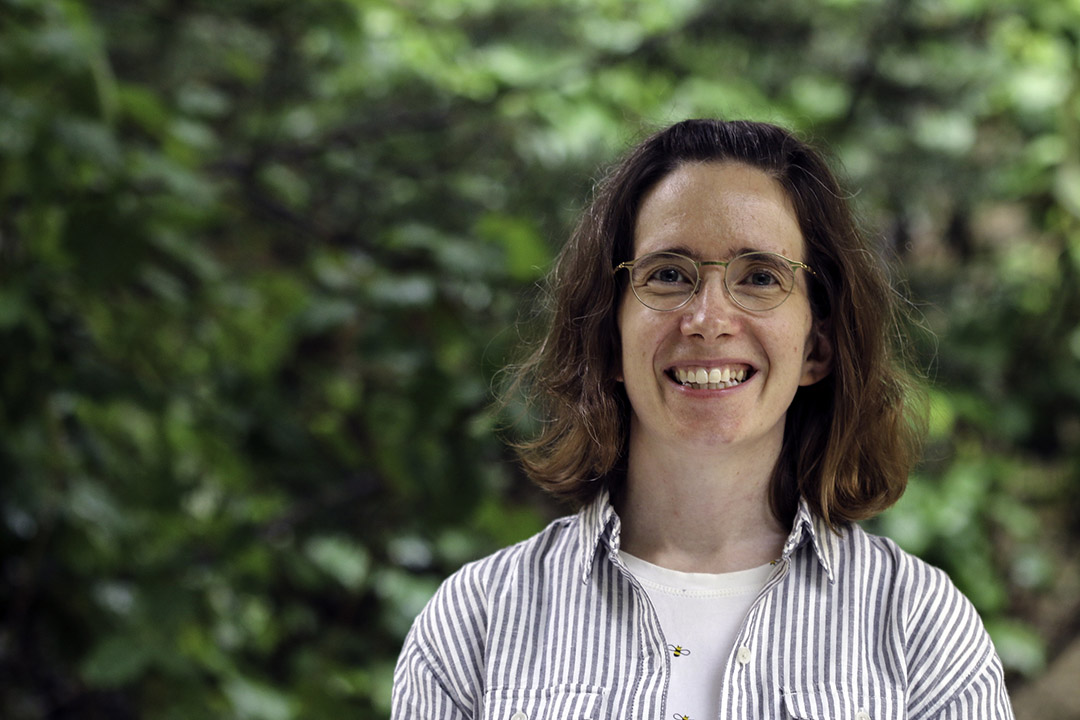WCVM set to hire pollinator health research chair at USask
SASKATOON – A new University of Saskatchewan (USask) research chair position at the Western College of Veterinary Medicine (WCVM) will focus on the health of pollinators that play an integral role in global food production and agricultural sustainability.
Bees sample a sugar and pesticide solution, part of a study on the effects of neonicotinoids — a type of insecticide — on bees. (Photo: Maddy Friesen)

Dr. Sarah Wood (PhD, DVM) is the new USask Pollinator Health Research Chair at the WCVM. Wood is a USask alumni who earned Doctor of Veterinary Medicine and PhD degrees from the WCVM, and who has worked on research related to pollinator health since 2015.
“My long-term vision for this research chair position is to enhance agricultural sustainability and ecosystem health by studying managed and wild bee species from a veterinary perspective. By applying veterinary research tools to address the ongoing challenges to pollinator health and biodiversity, I think we can make impactful change,” said Wood.
Animal pollinators—most of which are insects—are involved in two-thirds of global food production. Through their daily work, pollinators enable plants to successfully grow and produce crops. Among all pollinators, honey bees have the greatest impact on global crop production.
“As the first North American veterinary college to establish a honey bee research and teaching program, we are the ideal home for this new research chair. We are so grateful to the support from industry partners who recognize the need for these discoveries at such a critical time when honey bees and other pollinators are facing major health challenges,” said WCVM Dean Dr. Gillian Muir.
“This new research position is an exciting step for our college as our researchers strive to protect the health of both managed and wild pollinators, and in doing so, to improve agricultural sustainability in Canada and throughout the world.”
The new chair position was established through a $750,000, five-year funding commitment from the Saskatchewan Beekeepers Development Commission ($250,000), BASF ($250,000), SaskCanola ($150,000), British Columbia Blueberry Council ($50,000) and Manitoba Canola Growers ($50,000).
The research chair builds on the strengths of the college’s existing honey bee health research group, which is based in the WCVM’s Department of Veterinary Pathology. Led by Dr. Elemir Simko, the WCVM was the first veterinary college in North America to establish a honey bee research and teaching program in 2015.
“As members of the veterinary profession, we are uniquely prepared to tackle big questions around pollinator health, while doing so in a way that balances the need for high-quality food production with protection of pollinators and ecosystem health and biodiversity,” said Simko.
The group has steadily expanded its research program in the past seven years—thanks to more than $2 million in industry and government funding support. The group’s research work focuses on ecotoxicology, pesticide risk assessment and infectious disease. The research chair position will now allow work to expand in these key areas while training a new generation of veterinary professionals, beekeepers, researchers and policy makers.
Background: visit the WCVM Pollinator Health Research Chair web page.
-30-
For more information, contact:
Jeanette Neufeld
WCVM Communications
306-290-4572
jeanette.neufeld@usask.ca
Victoria Dinh
USask Media Relations
306-966-5487
victoria.dinh@usask.ca

